POOR THINGS (2023)
The incredible tale about the fantastical evolution of Bella; a young woman brought back to life by a brilliant and unorthodox scientist.
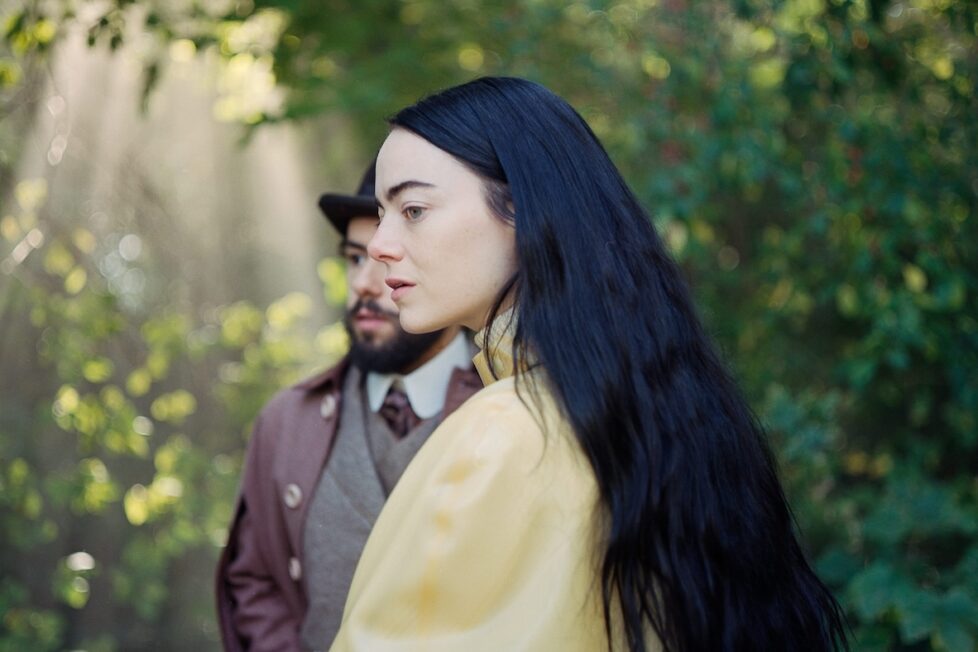
The incredible tale about the fantastical evolution of Bella; a young woman brought back to life by a brilliant and unorthodox scientist.


Poor Things is the latest and best film from director Yorgos Lanthimos. Since The Lobster (2015), Lanthimos has employed great technique and a confident surrealism, along with a blazing idiosyncratic style, creative editing, and eye-dazzling design. Weirdness comes easy to him. Each of his films explore new and strange places, often perverse and dangerous. Riotous colours and outrageous incidents abound, all delivered with his signature sly wit.
The movie opens in the late-1890s in Victorian London, a world enclosed by high castle walls of class distinction and sexual repression. Godwin Baxter (Willem Dafoe), a brilliant, semi-reclusive surgeon and instructor at a London medical school, evokes both fear and contempt in his students, except for young Max McCandles (Ramy Youssef), a studious square of impeccable kindness and modesty. As lonely as Max in his way, Godwin invites the young apple-polisher home to his ornate mansion where he adopts him as his live-in medical assistant.
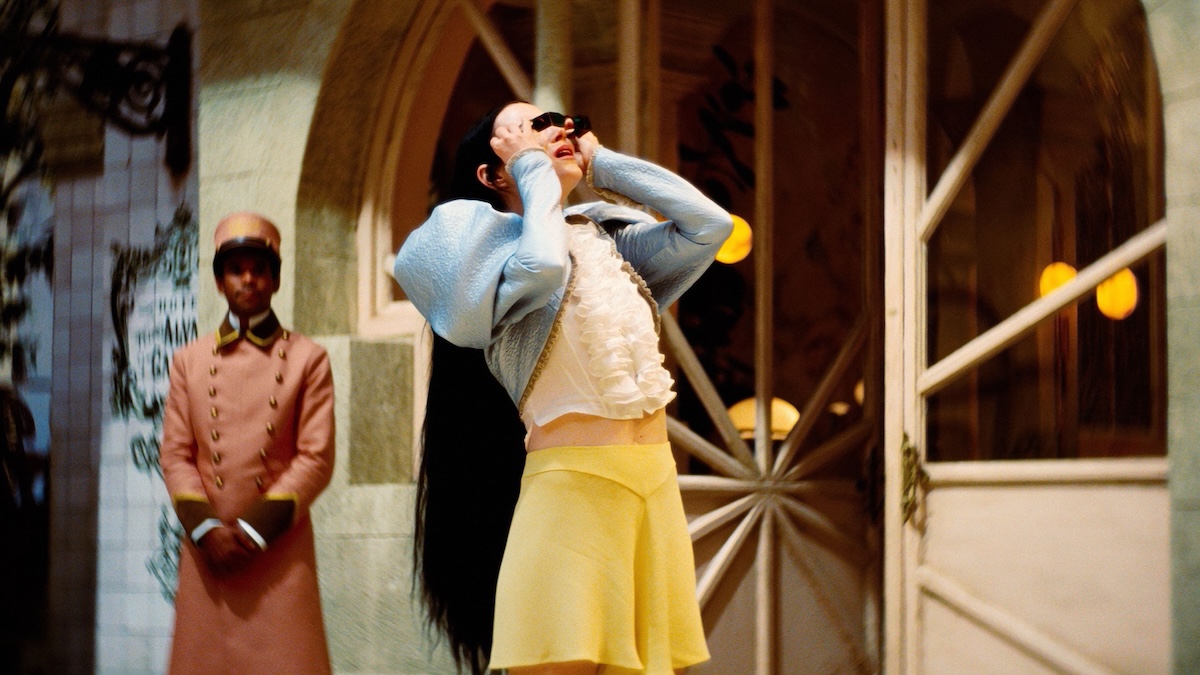
It’s no surprise that Godwin lives away from the world: his father was an ultra-brilliant pioneer surgeon who used his son as his chief guinea pig. He appears to have reverse engineered the boy’s brain, then clumsily reassembled his skull into ill-fitting chunks of melted caramel. (The prosthetics are marvellous, both hilarious and horrifying). His experiments also damaged the boy’s bodily functions to gross and surreal effect.
Godwin spins these badges of abusive parental trauma into the price paid for human and scientific progress (because sacrifices must be made). As his father wielded his scalpel on him, so Godwin wields it on his world. His experiments have produced a charmingly weird menagerie of household pets—a bulldog’s head stitched on to a chicken’s, while a goat seamlessly wears the head of a swan. Animal rights activists may cry out, but as these creatures all seem well fed and well treated, it’s safe to say Dr Baxter’s surgical skills exceed both those of his father’s and Dr Frankenstein’s.
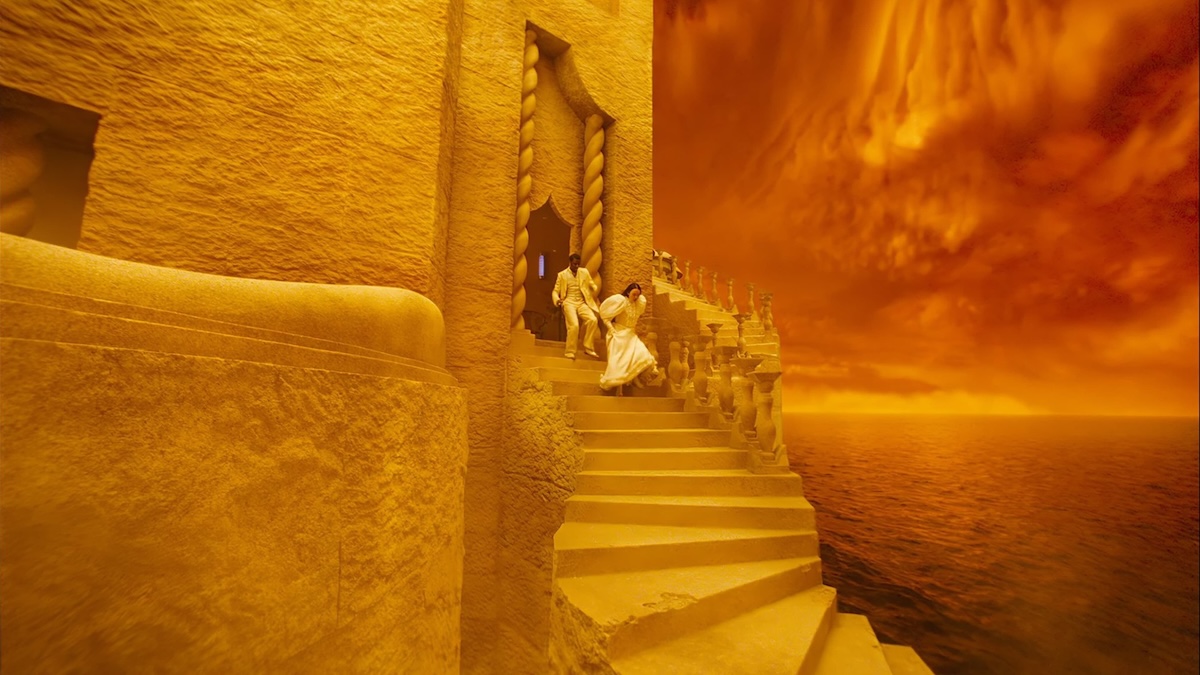
Strangest of all is Godwin’s ultimate, and human, creation: his female ward, Bella Baxter (Emma Stone). Bella’s no grotesque assembly of head, limbs and torso, but rather a lithe, raven-haired beauty who shows only a single mysterious stitch and who addresses her creator as “God”.
Here, the son has far outdone the father, except for one flaw. Within Bella’s fully matured woman’s body burbles the mind of a hilariously uncoordinated two-year-old whose words fly from her mouth in stream-of-consciousness alliteration. To her child’s spirit, every moment is bright, shiny, and new. She charges ahead with no boundaries, no manners. Life is a banquet whose every dish—including sexual—she devours with a lustful fervour. She’s an instinctive rebel and misfit at odds with the abstemious society surrounding her.
As Bella’s mind matures and she learns to move about without knocking things over, Max falls under her thrilling spell. Godwin accepts his request for Bella’s hand, but also reveals the grotesque truth of Bella’s origins and his real reasons for bringing Max into his home, reasons that fail to dissuade the lovestruck suitor.
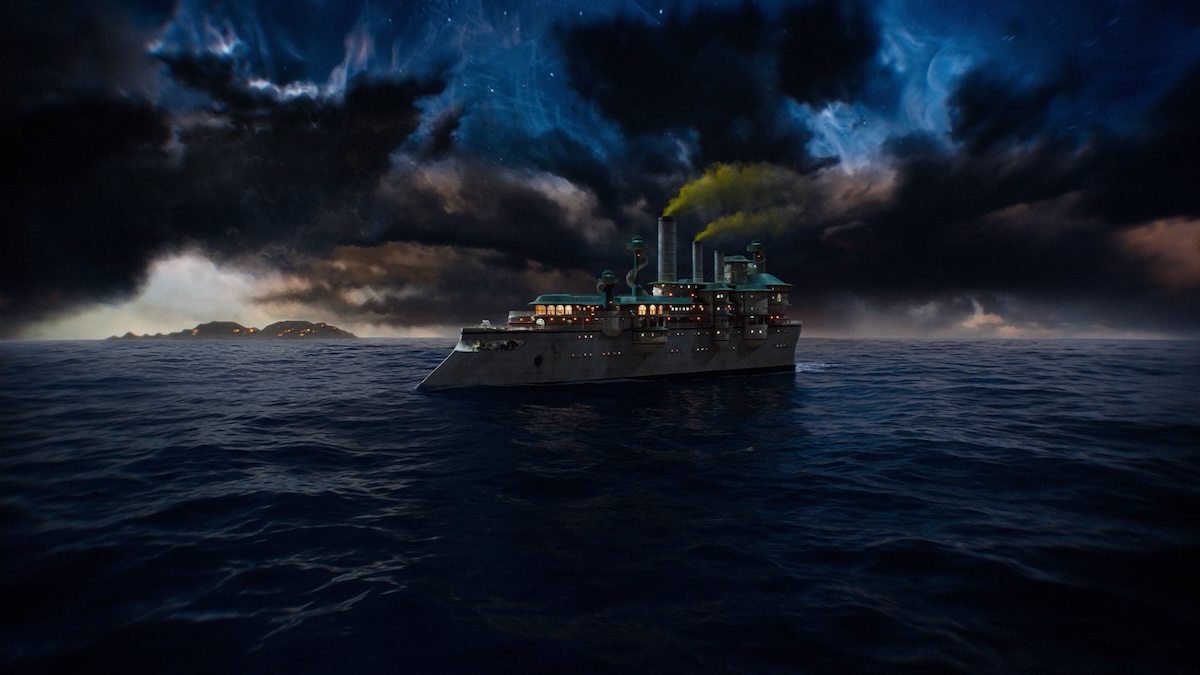
Bella is loyal to her guardian and willingly accepts Max’s proposal. But the arrangement is a complex one and that means one thing: lawyers. Namely, Duncan Wedderburn (Mark Ruffalo), a suave, worldly cad who resembles an older and seedier Errol Flynn. He’s the perfect hedonist for introducing a free spirit like Bella to the world outside her confines. (Though he has no idea what he’s in for.)
Once Bella turns her flighty passions to Duncan, she demands the freedom to explore the world with him. Godwin, aware that his creation must create her own self and sensing she would do otherwise anyway, wisely accedes, while ever-patient Max accepts.
From here, the film jumps fully into Bella’s point of view as she sets off with Duncan on a surreal whirlwind comic journey through fin de-siècle Europe and beyond, a tumultuous, lustful, yet magical voyage. Seen through her young eyes, it’s a world ablaze with color, passion, and plenty of misadventures. She embraces it all.
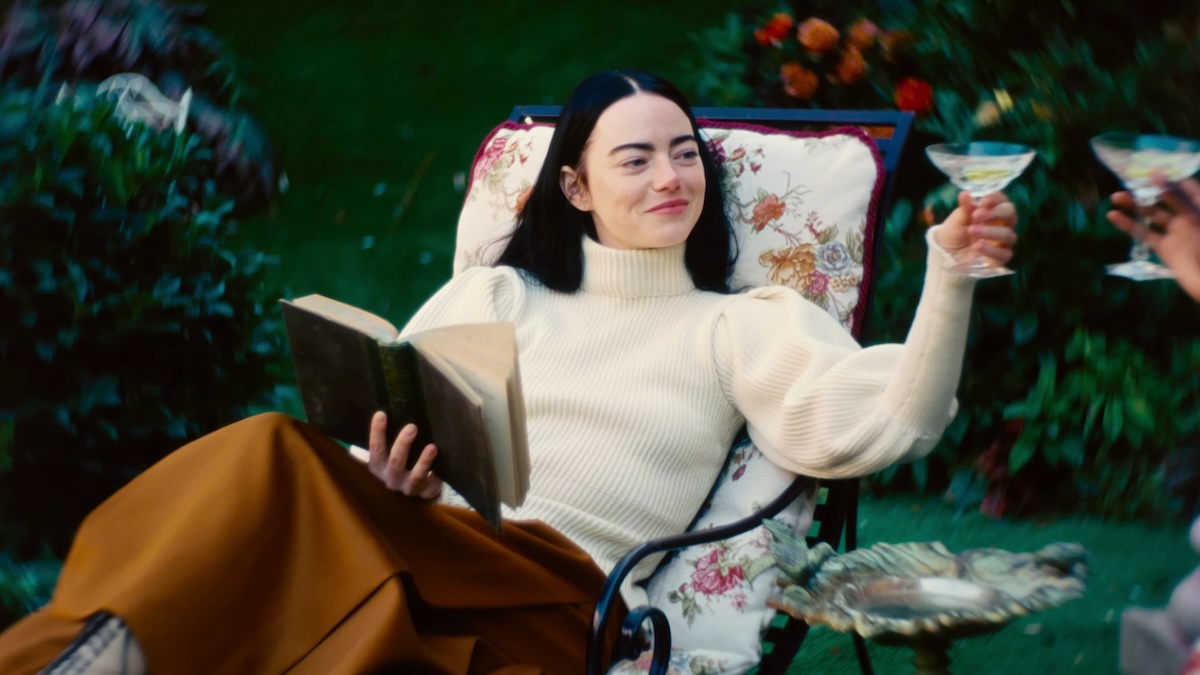
Frankenstein Created Woman (1967) may have been here first with the idea, but I doubt there’s a more ingenious take on Mary Shelley’s Frankenstein than this adaptation of Alasdair Gray’s 1992 novel. Faithful in tone and spirit to Gray’s excellent book, it recasts the Frankenstein story into a high-spirited romance that defies the original’s fundamental conservatism with uninhibited spirit. Bad things happen, but for once human fiddling with reality works out, even when driven by mixed motives and questionable practices. It may not be “realistic” or sufficiently cynical for our time, but its cockeyed optimism provides some relief in this gloomy age.
Where Saltburn (2023), another expressionist romp, took a sour view of earthly lust, Poor Things lifts a hearty explicit toast in its honour. (“Why don’t people do this all the time?” Bella innocently wonders.)
Surprisingly, the film raised in me stark memories of the glorious James Whale/Boris Karloff films of the 1930s: Karloff’s reaching for the sunlight pouring from above in Frankenstein (1931) before the lid closes, leaving him to sink back into darkness; and his bitter poignant line in The Bride of Frankenstein (1935): “I love death… hate living.” Poor Things releases its creature into the sunshine to romp through life’s garden of delights, both good and bad. Bella Baxter is no poor thing to pity.
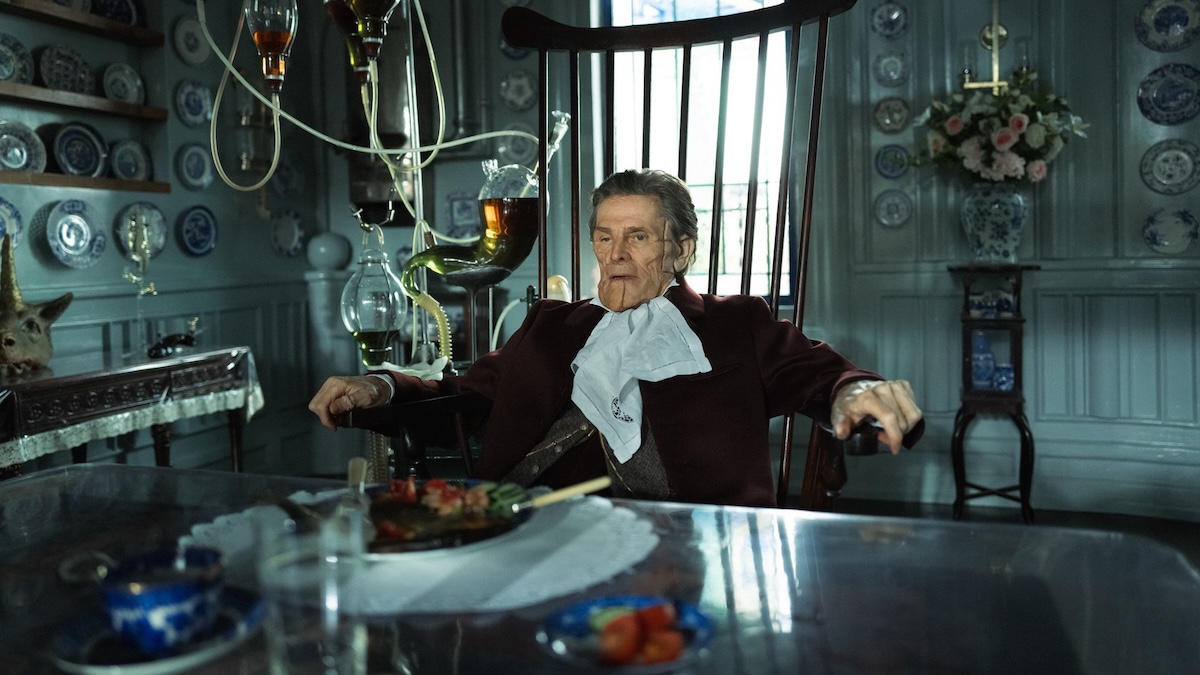
And yet, these comparisons with older, and other, versions, brings up a question that casts doubt on the film’s premise: Bella is no misshapen freak. She’s played by the beautiful Emma Stone, while previous iterations have been played by no one who looked like Cary Grant (but for two exceptions: Playboy Playmate Susan Denberg in Frankenstein Created Woman and Michael Sarrazin, who played a decadent, decaying creature in a 1973 TV adaptation, written by Christopher Isherwood).
Bella’s beauty protects her while opening doors closed to her homely ancestors, making her a character of privilege. Though she hits some rough patches (including a stint in a brothel), she’s never forced by raging peasants to hide out in the cemetery, like Karloff’s monster in The Bride of Frankenstein. Would Bella have been as well served if she’d been played by the likes of Olivia Colman or Kathy Bates? Beauty has its prerogatives, of which this film seems unaware.
In terms of cinematic artistry, Poor Things hits most every chord right. Robbie Ryan’s cinematography creates incredible streams and rivers of images that shift from the dull black-and-white world inside Godwin’s mansion to the oceans of colour Bella sees in the world beyond, though these shifts are applied inconsistently. The film also gets a little carried away with fisheye lens shots.
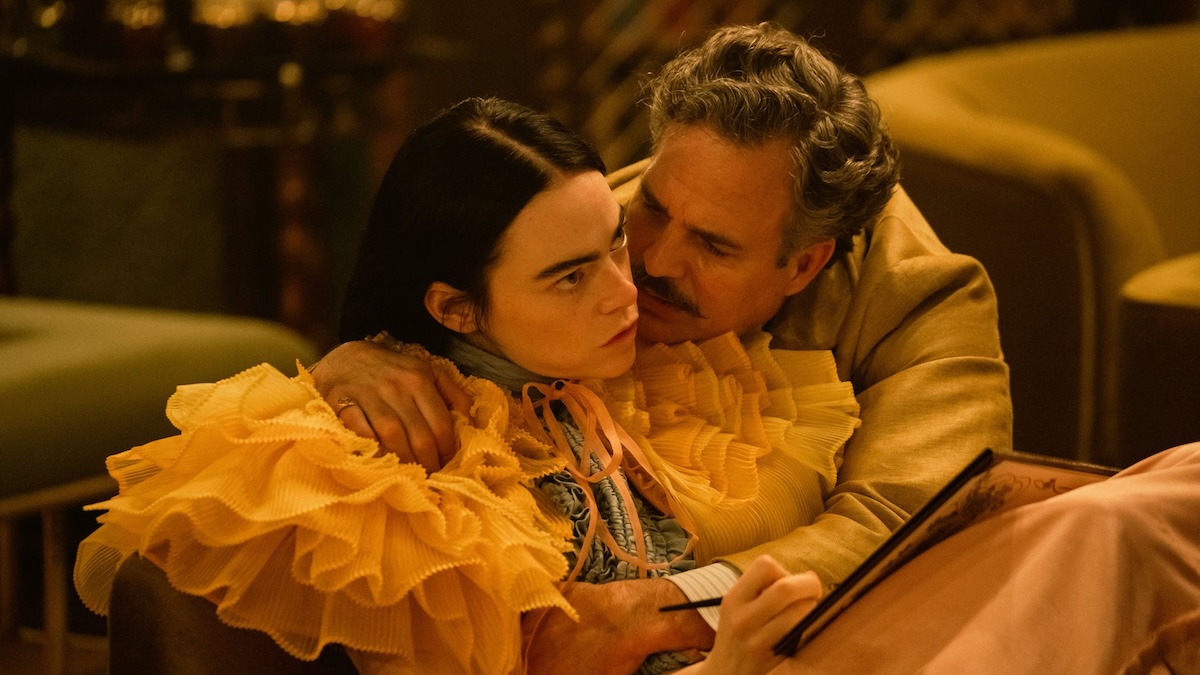
The design crew has created several superb cyberpunk touches, among them a cruise ship straight out of Jules Verne, that make that fabulous time seem even more fantastic to Bella. Composer Jerskin Fendrix keeps the circus under reign with a minimalist counterpoint score. Finally, Bella’s series of ever more elaborate dresses, designed by Holly Waddington, nicely picture her evolving sense of fashion along with her freedom.
Shortcomings are few, but so many ideas crowd Tony McNamara’s screenplay that many fail to take hold. Meanwhile, Yorgos Mavropsaridis’ otherwise excellent editing occasionally distracts with overuse of the iris effect. The fate of Bella’s chief antagonist, a starchy British general played by Christopher Abbott (Possessor), also isn’t resolved as wittily as it might have been, while poor, dull Max fades away in the woodwork.
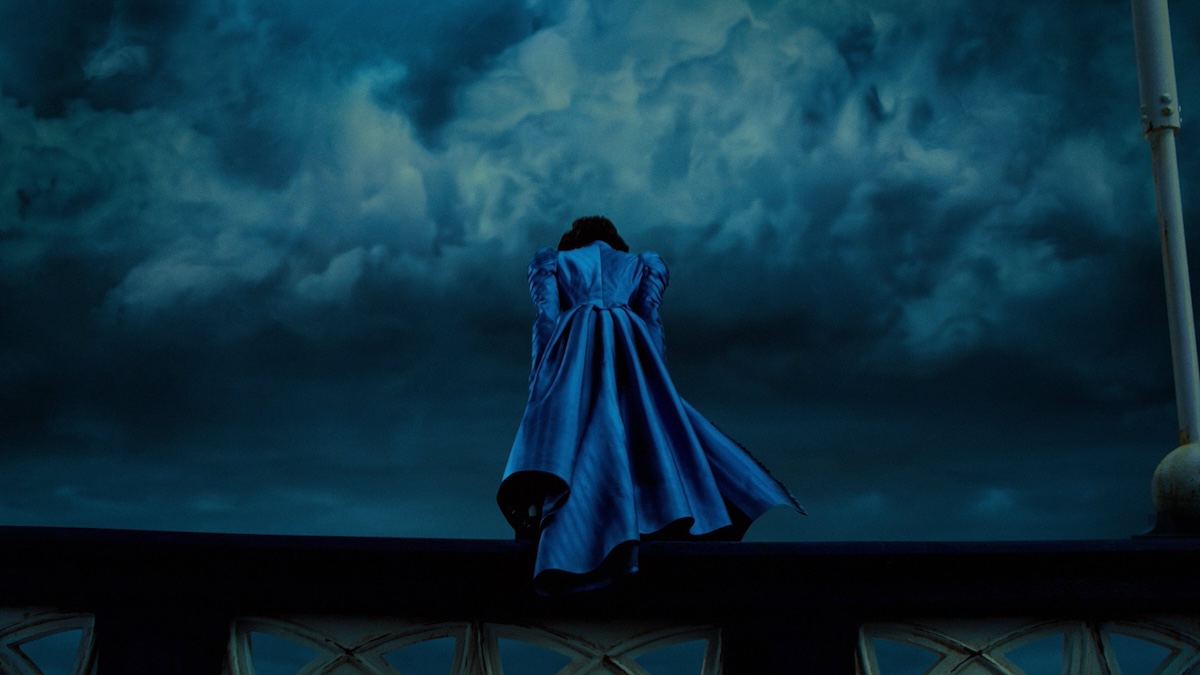
This time out, Lanthinos directs most of the actors to take a more naturalistic approach that provides contrast and tension against Bella’s defiant eccentricity. Dafoe is such a great actor, he easily breaks through his chunky prosthetics and win sympathy for Godwin, a man more sensitive viewers will reject as “problematic” for his fiddling with other people’s bodies. Mark Ruffalo meanwhile is great fun as Duncan, the strutting macho rake whom Bella overwhelms, undoes, and brings crashing to earth.
As Bella, Emma Stone superbly high-kicks her way through every scene with disciplined creativity, precision, and passion. Through her big warm eyes, we can see the gears grinding toward greater awareness as she transforms from a flailing toddler to a mature woman with balletic grace, while retaining just a touch of awkwardness in the bearing of her shoulders. Try as we might, few if any of us, lose all traces of our childhood.
IRELAND • UK • USA | 2023 | 142 MINUTES | 1.66:1 | BLACK & WHITE • COLOUR | ENGLISH • FRENCH • PORTUGUESE

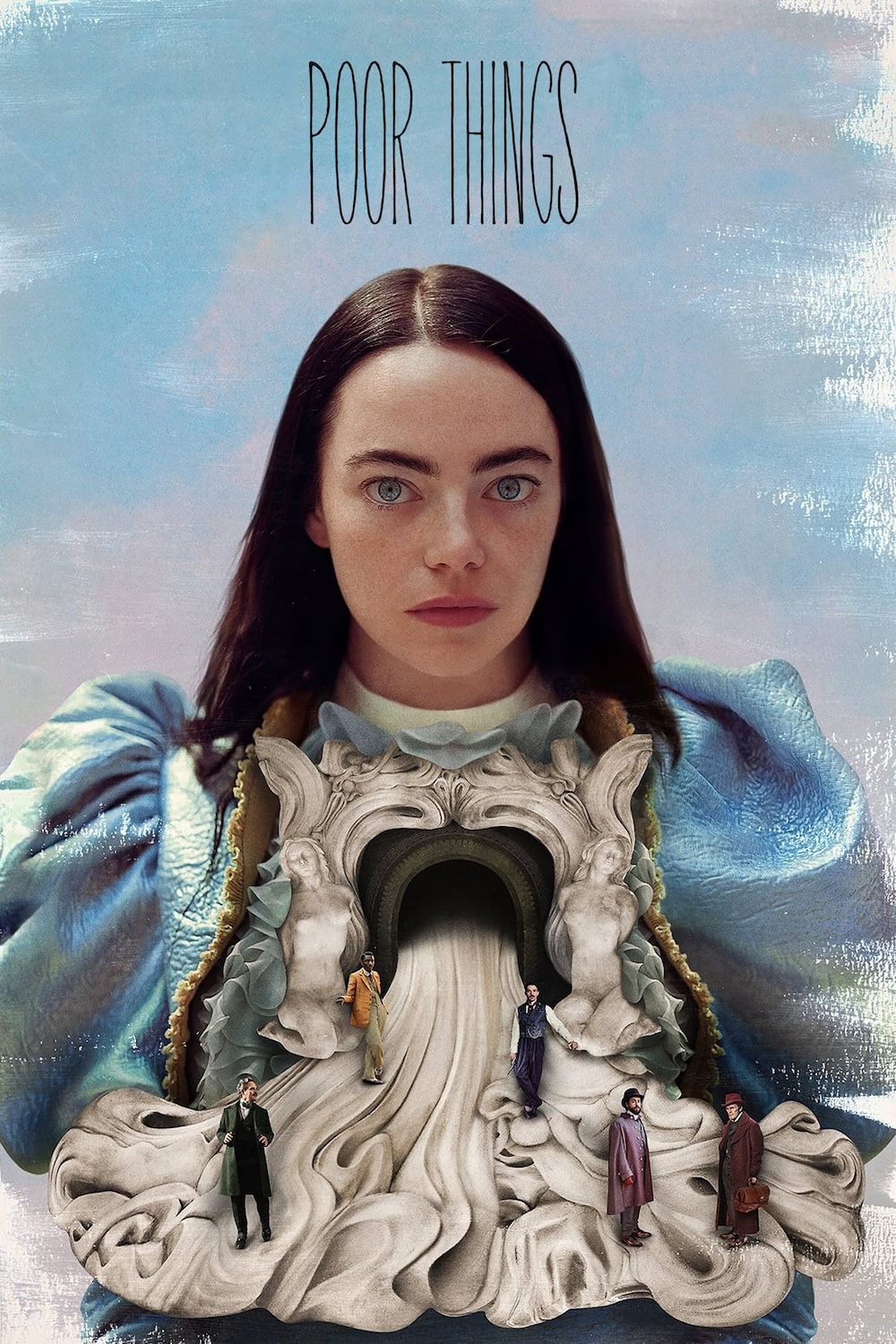
director: Yorgos Lanthimos.
writer: Tony McNamara (based on the novel by Alasdair Gray).
starring: Emma Stone, Mark Ruffalo, Willem Dafoe, Ramy Youssef, Christopher Abbott & Jerrod Carmichael.
